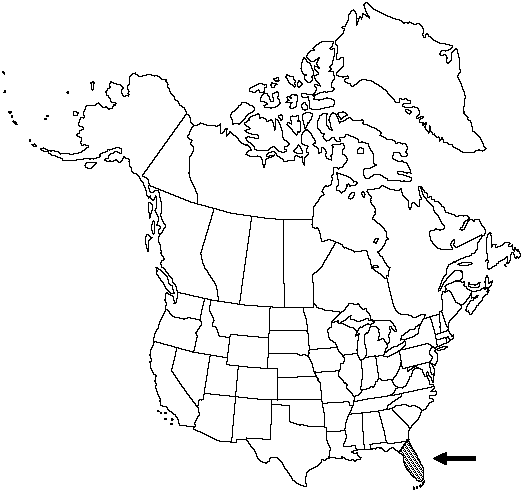FNA>Volume Importer |
FNA>Volume Importer |
| Line 17: |
Line 17: |
| | }}<!-- | | }}<!-- |
| | | | |
| − | --><span class="statement" id="st-d0_s0" data-properties="stem fragility or size;stem orientation;stem growth form or orientation;stem architecture;stem orientation;trunk growth form;trunk growth form"><b>Stems </b>stout, horizontal and long-creeping, branched, partly erect at tip, rarely climbing tree trunks.</span> <span class="statement" id="st-d0_s1" data-properties="leaf architecture;leaf arrangement;leaf orientation;leaf orientation;leaf orientation"><b>Leaves </b>± monomorphic, widely spaced, erect to arching.</span> <span class="statement" id="st-d0_s2" data-properties="petiole coloration;petiole coloration;petiole coloration;petiole coloration;petiole some measurement;petiole architecture or pubescence"><b>Petiole </b>dull yellow or grayish brown or light-brown, 10-55 cm, finely scaly proximally.</span> <span class="statement" id="st-d0_s3" data-properties="blade shape;blade shape;blade shape;blade architecture or shape;blade length;blade width;base architecture or shape;base pubescence"><b>Blade </b>broadly linear to elliptic-lanceolate, 1-pinnate throughout, with conform terminal pinnae, 25-70 × 5-28 cm, base truncate, glabrous.</span> <span class="statement" id="st-d0_s4" data-properties="indument count"><b>Rachis </b>lacking indument abaxially.</span> <span class="statement" id="st-d0_s5" data-properties="pinna architecture;pinna architecture;pinna architecture;pinna architecture"><b>Pinnae </b>articulate to rachis except for terminal pinna, subsessile to short-stalked;</span> <span class="statement" id="st-d0_s6" data-properties="larger pinna course;larger pinna arrangement or course or shape;larger pinna condition or size;pinna shape;pinna shape;pinna length;pinna width;pinna reproduction;pinna size">larger pinnae ± straight, linear to linear-elliptic or linear-lanceolate, 3-15 × 0.5-1.8 cm, fertile pinnae often slightly smaller and contracted;</span> <span class="statement" id="st-d0_s7" data-properties="margin architecture or shape">margins serrulate;</span> <span class="statement" id="st-d0_s8" data-properties="">costae with indument of scales abaxially.</span> <span class="statement" id="st-d0_s9" data-properties="2n chromosome count">2n = 72.</span><!-- | + | --><span class="statement" id="st-undefined" data-properties=""><b>Stems </b>stout, horizontal and long-creeping, branched, partly erect at tip, rarely climbing tree trunks. <b>Leaves</b> ± monomorphic, widely spaced, erect to arching. <b>Petiole</b> dull yellow or grayish brown or light brown, 10-55 cm, finely scaly proximally. <b>Blade</b> broadly linear to elliptic-lanceolate, 1-pinnate throughout, with conform terminal pinnae, 25-70 × 5-28 cm, base truncate, glabrous. <b>Rachis</b> lacking indument abaxially. <b>Pinnae</b> articulate to rachis except for terminal pinna, subsessile to short-stalked; larger pinnae ± straight, linear to linear-elliptic or linear-lanceolate, 3-15 × 0.5-1.8 cm, fertile pinnae often slightly smaller and contracted; margins serrulate; costae with indument of scales abaxially. <b>2n</b> = 72.</span><!-- |
| | | | |
| | -->{{Treatment/Body | | -->{{Treatment/Body |
| Line 46: |
Line 46: |
| | |publication year=1792 | | |publication year=1792 |
| | |special status= | | |special status= |
| − | |source xml=https://jpend@bitbucket.org/aafc-mbb/fna-fine-grained-xml.git/src/287ef3db526bd807d435a3c7423ef2df1e951227/V2/V2_372.xml | + | |source xml=https://jpend@bitbucket.org/aafc-mbb/fna-data-curation.git/src/9216fc802291cd3df363fd52122300479582ede7/coarse_grained_fna_xml/V2/V2_372.xml |
| | |genus=Blechnum | | |genus=Blechnum |
| | |species=Blechnum serrulatum | | |species=Blechnum serrulatum |
| − | |2n chromosome count=72
| |
| − | |base architecture or shape=truncate
| |
| − | |base pubescence=glabrous
| |
| − | |blade architecture or shape=1-pinnate
| |
| − | |blade length=25cm;70cm
| |
| − | |blade shape=broadly linear;elliptic-lanceolate
| |
| − | |blade width=5cm;28cm
| |
| − | |indument count=lacking
| |
| − | |larger pinna arrangement or course or shape=linear
| |
| − | |larger pinna condition or size=contracted
| |
| − | |larger pinna course=straight
| |
| − | |leaf architecture=monomorphic
| |
| − | |leaf arrangement=spaced
| |
| − | |leaf orientation=erect;arching
| |
| − | |margin architecture or shape=serrulate
| |
| − | |petiole architecture or pubescence=scaly
| |
| − | |petiole coloration=light-brown;grayish brown;yellow;dull
| |
| − | |petiole some measurement=10cm;55cm
| |
| − | |pinna architecture=subsessile;short-stalked
| |
| − | |pinna length=3cm;15cm
| |
| − | |pinna reproduction=fertile
| |
| − | |pinna shape=linear-lanceolate;linear-elliptic
| |
| − | |pinna size=smaller
| |
| − | |pinna width=0.5cm;1.8cm
| |
| − | |stem architecture=branched
| |
| − | |stem fragility or size=stout
| |
| − | |stem growth form or orientation=long-creeping
| |
| − | |stem orientation=erect;horizontal
| |
| − | |trunk growth form=tree;climbing
| |
| | }}<!-- | | }}<!-- |
| | | | |
| | -->[[Category:Treatment]][[Category:Blechnum]] | | -->[[Category:Treatment]][[Category:Blechnum]] |
Stems stout, horizontal and long-creeping, branched, partly erect at tip, rarely climbing tree trunks. Leaves ± monomorphic, widely spaced, erect to arching. Petiole dull yellow or grayish brown or light brown, 10-55 cm, finely scaly proximally. Blade broadly linear to elliptic-lanceolate, 1-pinnate throughout, with conform terminal pinnae, 25-70 × 5-28 cm, base truncate, glabrous. Rachis lacking indument abaxially. Pinnae articulate to rachis except for terminal pinna, subsessile to short-stalked; larger pinnae ± straight, linear to linear-elliptic or linear-lanceolate, 3-15 × 0.5-1.8 cm, fertile pinnae often slightly smaller and contracted; margins serrulate; costae with indument of scales abaxially. 2n = 72.
Habitat: Swamps, marshes, wet prairies, and adjacent moist pine woods or hammocks
Elevation: 0 m
Distribution
Fla., Central America, South America.
Discussion
Plants of Blechnum serrulatum occurring in open sun are often dwarfed and stiffly erect. Those occurring in brackish conditions or perennially flooded areas may become hemiepiphytes.
Selected References
None.
